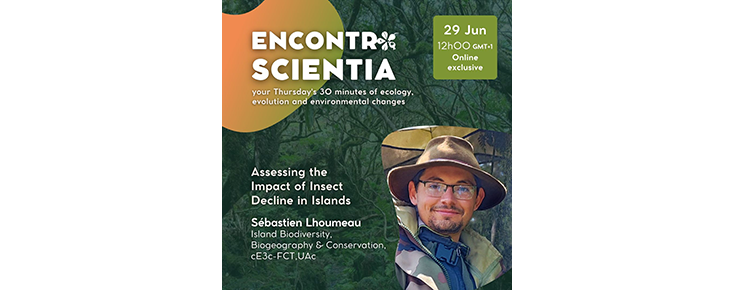
Por Sébastien Lhoumeau (cE3c - Island Biodiversity, Biogeography & Conservation).
The ongoing decline of insect populations highlight the need for long-term ecological monitoring. As part of the “SLAM - Long Term Ecological Study of the Impacts of Climate Change on the Natural Forests of Azores” project, we investigated changes in arthropod diversity and community structure over a ten-year period (2012–2022) in the native forest of the island of Terceira (Azores). Focused on two arthropod assemblages (indigenous and non-indigenous species) monitored with SLAM traps, we asked if there was a distinguishable pattern in the diversity and structure of the studied arthropod subsets in a pristine island native forest.
Species richness remained relatively constant. Endemic arthropods dominated and remained stable over time, indicating the forest’s ecological stability. In contrast, the assemblage of native non-endemic arthropods underwent changes, including increased hyperdominance and decreased biomass. The introduced arthropod assemblage showed more erratic dynamics driven by species turnover. Results suggested that temporal variation in each subset may be due to different ecological processes and that niche filtering may limit the establishment and spread of introduced arthropods. This research contributes to our understanding of the temporal dynamics of arthropods in native island forests and highlights the need for ongoing conservation efforts to protect these fragile ecosystems.
Transmissão via Zoom (pw: 060681).
















